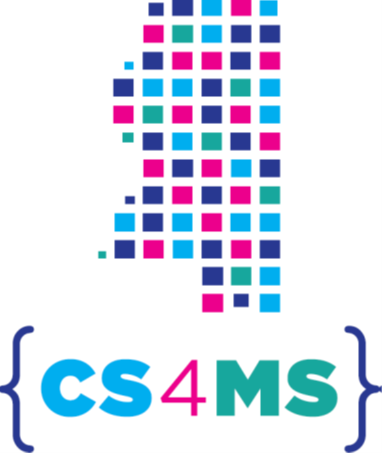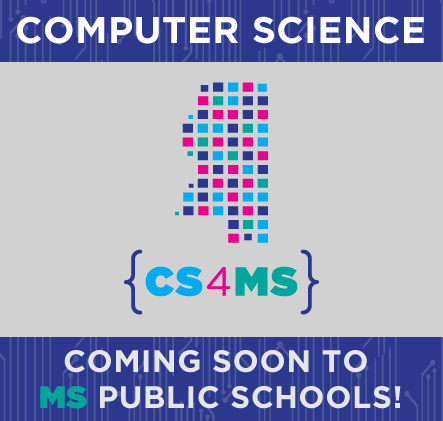JACKSON, Miss. – The Mississippi Department of Education (MDE) has announced the launch of the Computer Science for Mississippi (CS4MS) program, developed in partnership with the RCU.
Thirty-four school districts from across Mississippi will participate in the first year of the CS4MS pilot program, which will debut during the 2016-2017 academic year. The goal of CS4MS is to introduce Mississippi students to computer science (CS), equipping them to be technologically literate citizens and preparing them for CS jobs, as well as other STEM-related careers.
“The Mississippi Department of Education is extremely excited to unveil the first steps of a comprehensive K-12 computer science strategy that will give our students the ability to compete on a worldwide basis,” said Mike Mulvihill, director of career and technical education at MDE. “Working in conjunction with the RCU, we will pilot the first phase of this process with 34 forward-looking districts to prepare our students to be proficient in the workforce and have the ability to adapt to new technology as it becomes available.”
The CS4MS pilot program was created to address an urgent economic need. According to Code.org, there are currently 607,708 open computing jobs nationwide, but the US only graduated 42,969 CS students into the workforce last year. Increasingly, schools and parents alike are realizing the potential and promise of CS, yet most schools do not offer CS opportunities for students.
The CS4MS pilot program aims to address this knowledge gap so that Mississippi’s students can compete for CS jobs alongside candidates from any other state or country around the world. In order to qualify for the CS4MS pilot, the 34 participating districts have committed to a robust schedule of professional development, data gathering, and adequate technology and infrastructure. During the pilot’s first year, 235 teachers from 156 elementary and high schools will deliver CS content. For elementary school students, the CS curriculum will include coding, digital literacy, keyboarding, and robotics. High school students will enroll in a comprehensive CS course that covers the fundamental concepts and big ideas of computing and coding.
During future years of the CS4MS pilot program, MDE plans to add CS courses for 6th-8th grades and expand high school course offerings. By 2024, CS4MS aims to have a continuous K-12 CS curriculum in place for all Mississippi public schools that gives students a foundation in problem-solving, critical thinking, logic, coding, and cyber literacy.
In order to bring CS4MS to life, MDE partnered with the RCU to lay the groundwork for this ambitious pilot program. RCU staff conducted research to discover how other states incorporate CS into their public schools and then worked with MDE to select pilot curricula, set initial standards, and structure the program. The RCU also spearheaded the creation of a CS4MS steering committee that includes representatives from K-12, higher education, and industry.
As CS4MS unfolds, the RCU will continue to ensure educators are equipped with the professional development and support they need to make the program a success. The RCU will work with the CS4MS steering committee on an ongoing basis to craft a K-12 CS framework that is tailored to Mississippi’s specific needs.
“The CS4MS goal is one of the most important education initiatives since the Education Reform Act,” said Julie Jordan, director of the RCU. “I see this as an economic imperative because not doing this will handicap the future competitiveness of our students and our state. If we can leapfrog other states with this initiative, we can change the economic trajectory of our workforce.”


